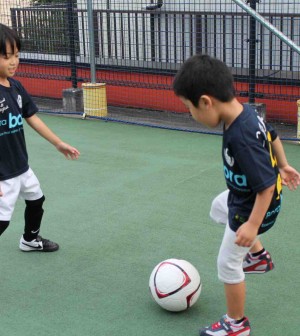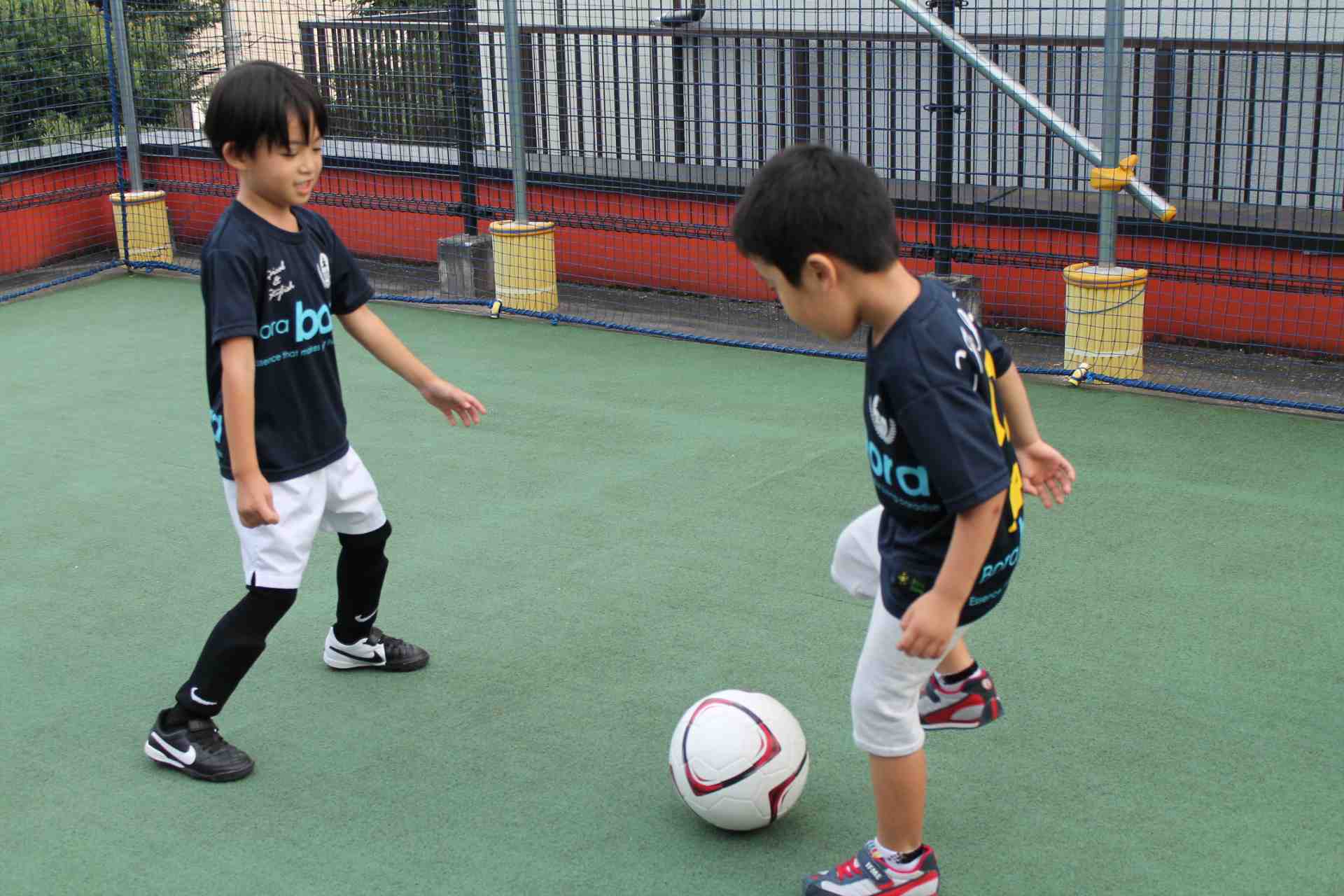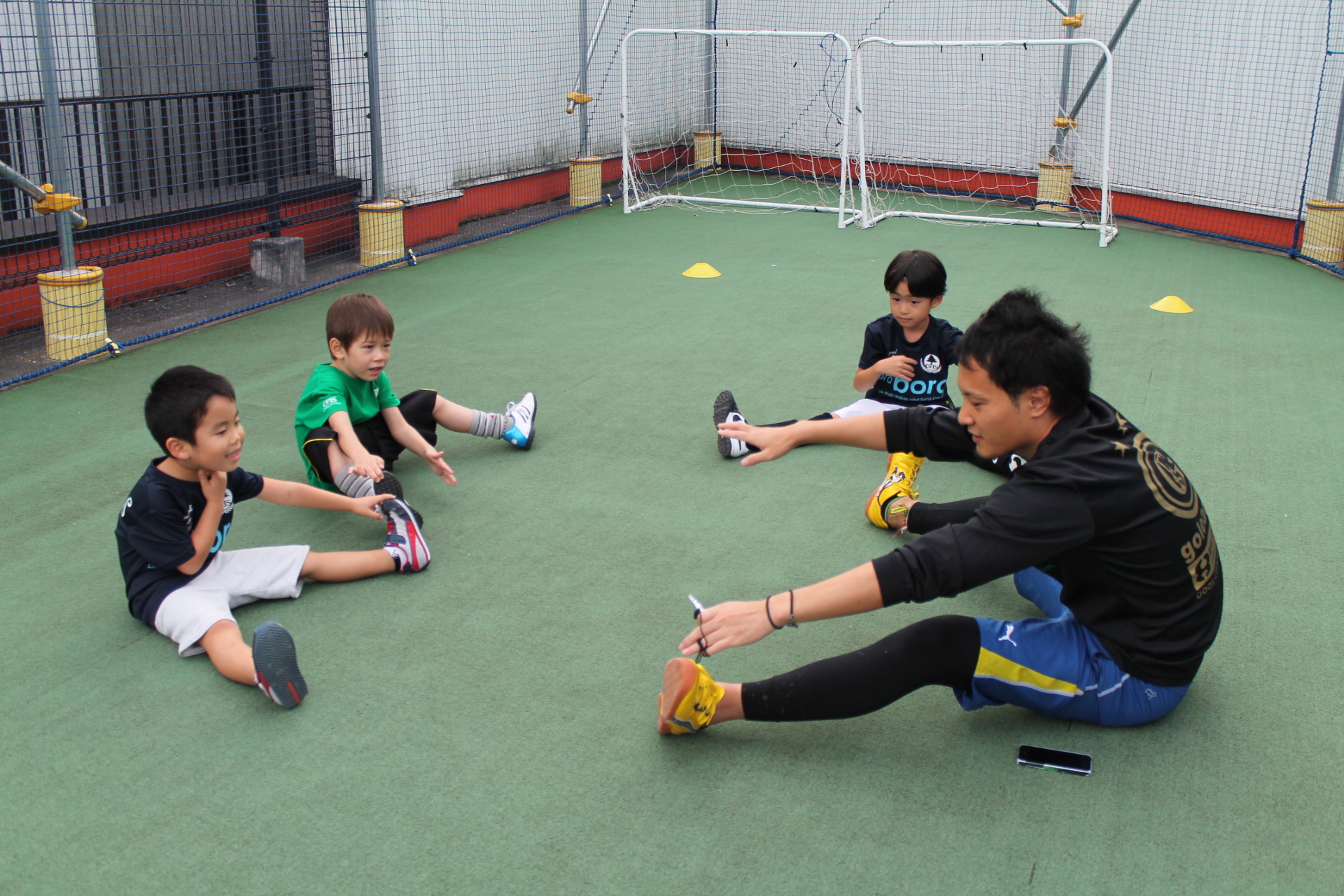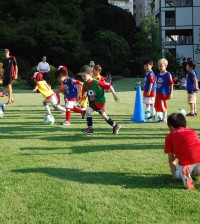- Belgium comes to Yamashita Park
- Residential Villa in Phuket Entices Remote Workers With Long-Stay Rates
- Rare pieces of French glass art at the Mirai Museum of Art
- Feast on fresh fish and seafood at the 2024 ‘Sakana’ Festival
- Would you like to ride in a Louis Vuitton gondola lift?
- Naked Snow Aquarium
- Festive lights at Yomiuriland will get you feeling the holiday vibes
Sports coaches talk about kids & team sports

When the Olympics come to Tokyo in 2020, our city will host some of the best athletes in the world. Chances are good that almost all of those athletes started in sports by playing on teams as kids.
While not all athletic children go on to compete for Olympic medals, there are still many benefits for the average kid who gets involved in sports, whether its soccer, basketball, baseball or lacrosse.
We checked in with two experienced coaches to get their perspective on what children gain when they join a team. As parents, it can be a hassle dealing with our children’s crowded schedules, but if you’re on the fence about whether to sign your child up for a sport this summer, maybe these coaches’ thoughts will come in handy.
Takayuki Fujimura is a JFA (Japanese Football Association) licensed coach who coaches youth teams locally. He also teaches preschool in Tachikawa at Central Forest International School, where he manages the CFIS Soccer School. Remus Smith has coached basketball and baseball to elementary school-aged children, primarily in community teams, for the past 15 years. Currently, he coaches basketball to 7- and 8-year-olds on Yokota Air Base in Fussa.
As an educator and a coach, Fujimura finds sports to be an excellent teaching tool.
“It helps them to build their mental capabilities, as well as helps with behavior. They learn to focus,” Fujimura said.
Even really little kids can show improvement. “Typically, the standard advice is kids can start from elementary school but I think they can start as young as 3,” he said.
For all ages, both coaches emphasized that kids should be having fun, even if they’re working hard.
“I make all my drills fun but make them competitive,” Smith said. “I believe in taking it easy at first and making sure they know how to do the basics. It’s not a lot of pressure but we’re drilling the fundamentals into them.”
Fujimura turns the drills he does with younger children into little games. “I’m not going to say ‘You crawl! You do a push-up!’ At a young age, at preschool age, they do rabbit jumps or frog jumps or cat walking. That helps them develop physical coordination, an important skill.”
It’s a process. “So many coaches try to set up the goal and kids must do this and do this and do this,” Fujimura said. “I prefer to start small and build up the stages. It takes a lot of time.”
Both coaches said that learning how to try is one of the most important lessons their young charges learn.
 “Kids will say ‘I can’t do that. This is hard,’ Fujimura said. “For very small kids, I always try to encourage them. ‘If you can do this, maybe you will be happy. The first time is hard, but you should keep trying.’ Trying is really good for mental development.”
“Kids will say ‘I can’t do that. This is hard,’ Fujimura said. “For very small kids, I always try to encourage them. ‘If you can do this, maybe you will be happy. The first time is hard, but you should keep trying.’ Trying is really good for mental development.”
Smith has observed how much kids’ self-esteem grows as they keep at it. “I have some kids who come in really confident, but not all,” he said. “I had some players this year who came in kind of shy and in the first few games wouldn’t take the ball. By the end of the season though, they were right there with their teammates, aggressive on the court.”
Through sports, kids can learn that failing is okay sometimes. Losing can be tough but beneficial, Smith said. “It helps them grow stronger. They learn how to take disappointment,” he said.
Fujimura agreed. “They need to learn challenges and to know that even if I fail, I don’t care,” he said.
 Learning to be a part of a team is key. “At elementary age, it gets easier. For the younger children, they’re still learning about each other,” Fujimura said. “Team work can be as simple as making a partner or buddy. They learn to do something like keep a soccer ball up between their chests and hold hands with a partner and walk.”
Learning to be a part of a team is key. “At elementary age, it gets easier. For the younger children, they’re still learning about each other,” Fujimura said. “Team work can be as simple as making a partner or buddy. They learn to do something like keep a soccer ball up between their chests and hold hands with a partner and walk.”
Teams help kids learn how to think of others besides themselves. “A lot of kids are kind of selfish. They want to shoot all the shots,” Smith said. “But get them to play together and they benefit. When they come in, they’re very much individuals but after one season they’ve learned to work as a group.”
That’s the kind of skill that could help them their entire lives. “Sports are very important for when they grow up,” Fujimura said. “When they go to work, they can work as part of a team.”♦
FIND A CLASS
Football
British Football Academy www.british-football-academy.com
Cienciano Soccer Club Japon www.cienciano.jp
JSN Soccer School www.jsn-soccer.com/
Kaze no Ko Football Club www.geocities.jp/kazenokofc/
Konami Sports Club www.konamisports
Liberta Soccer School http://liberta.jjfc.com/
Tom Byer Academy http://tomsan.com/en/index.php
Toddler Soccer (for ages 2-5 yo) Tokyo American Club www.tokyoamericanclub.org
Total Football Academy http://totalfootball.co.jp/eng/
Verdy Tokyo www.verdy.co.jp
Tennis
F Tennis School www.f-agency.co.jp
Globa Tennis www.globa-tennis.com/kids-tennis.html
Green Eight Tennis School www.green8.jp
Jinji Tennis www.jinjitennis.com
Krissman International Tennis School http://tennisintokyo.com/
Midorigaoka Tennis Garden www.midorigaoka.co.jp/tennisschool/index.html
Takaido Diamond Tennis Club www.tdtc.jp
Tokyo Green Hills Tennis School http://greenhills.jp/
Tokyo Tennis School http://tokyo.tennis-school1.com/
YMCA Tennis School www.ymcatennis.com/
Yonex Tennis Academy (Saitama) www.tennis-navi.jp
Baseball
Kids Baseball School
http://kids-baseballschool.com/
Hawks Kids Baseball School www.hawks-npo.jp/kidsschool/
Hit & Run Kids Baseball School www.npo-hitandrun.com/kids_school/kidsbaseball_index.html
Yumeno Baseball Club http://yumenobc.com/
Basketball
Buddy Sports www.buddy-sports.co.jp/club_school/school_bj
Central Sports www.central.co.jp/kids-sports/basketball/
Heartz Basketball School http://heartz.jjfc.com/school/
Yokohama YMCA http://www.yokohamaymca.org/wellness/children/sports/basketball/
Yokohama Country & Athletic Club (YC&AC) http://ycac.or.jp/wp/kids-youth-sports/
*Baseball meetups Rounders Baseball Club www.meetup.com/baseball-in-tokyo-group/ (sponsored by major international schools)












